Filter by
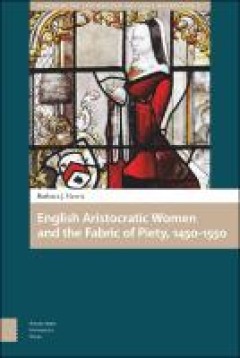
English Aristocratic Women and the Fabric of Piety, 1450-1550
- Edition
- -
- ISBN/ISSN
- 9789048537228
- Collation
- -
- Series Title
- -
- Call Number
- -
- Edition
- -
- ISBN/ISSN
- 9789048537228
- Collation
- -
- Series Title
- -
- Call Number
- -
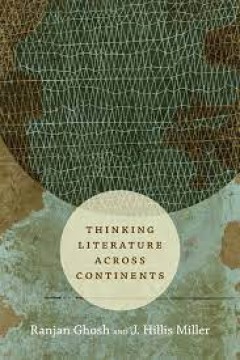
Thinking Literature across Continents
'Thinking Literature across Continents' finds Ranjan Ghosh and J. Hillis Miller—two thinkers from different continents, cultures, training, and critical perspectives—debating and reflecting upon what literature is and why it matters. Ghosh and Miller do not attempt to formulate a joint theory of literature; rather, they allow their different backgrounds and lively disagreements to stimulate…
- Edition
- -
- ISBN/ISSN
- 9780822373698
- Collation
- -
- Series Title
- -
- Call Number
- -
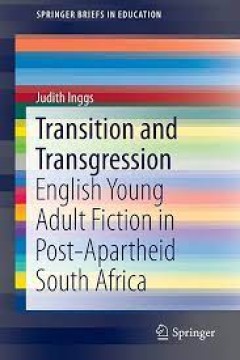
Transition and Transgression English Young Adult Fiction in Post-Apartheid S…
This book conveys the story of a society in the throes of restructuring itself and struggling to find a new identity. A particularly attractive aspect of this study is the focus on young adult literature and its place in post-apartheid South Africa, as well as its potential use in the classroom and lecture hall. Intersecting these two topics provides a compelling lens for refocusing debate on …
- Edition
- -
- ISBN/ISSN
- 978-3-319-25534-7
- Collation
- -
- Series Title
- -
- Call Number
- -
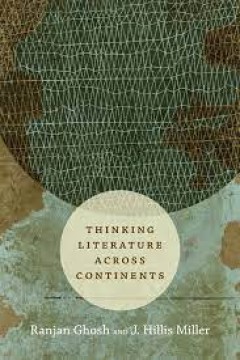
Thinking Literature across Continents
'Thinking Literature across Continents' finds Ranjan Ghosh and J. Hillis Miller—two thinkers from different continents, cultures, training, and critical perspectives—debating and reflecting upon what literature is and why it matters. Ghosh and Miller do not attempt to formulate a joint theory of literature; rather, they allow their different backgrounds and lively disagreements to stimulate…
- Edition
- -
- ISBN/ISSN
- 9780822373698
- Collation
- -
- Series Title
- -
- Call Number
- -

Framed: The New Woman Criminal in British Culture at the Fin de Siecle
By introducing us to the New Woman Criminal, Framed offers a profoundly different view of the fin de siècle British crime narrative
- Edition
- -
- ISBN/ISSN
- 9780472050444
- Collation
- -
- Series Title
- -
- Call Number
- -
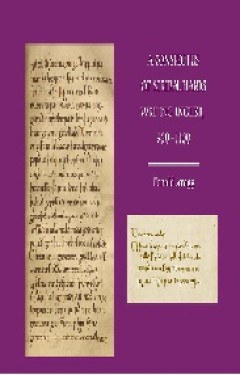
A Conspectus of Scribal Hands Writing English, 960-1100
During the final century of the Anglo-Saxon state, the use of written English reached remarkable heights. Yet, while the make-up and contents of the many books and documents surviving from the periodhave been fully catalogued, less attention has been devoted to those who produced them. This is the first comprehensive annotated list of the scribal hands whose work survives from the time of the B…
- Edition
- -
- ISBN/ISSN
- 9781782047421
- Collation
- -
- Series Title
- -
- Call Number
- -

A Feminine Enlightenment British Women Writers and the Philosophy of Progres…
Drawing on original archival research, A Feminine Enlightenment argues that women writers shaped Enlightenment conversations regarding the role of sentiment and gender in the civilizing process. By reading women's literature alongside history and philosophy and moving between the eighteenth century and Romantic era, JoEllen DeLucia challenges conventional historical and generic boundaries. Begi…
- Edition
- -
- ISBN/ISSN
- 9780748695959
- Collation
- -
- Series Title
- -
- Call Number
- -

A Divided Poet Robert Frost, North of Boston, and the Drama of Disappearance
Frost's breakthrough book of poetry seen anew as an artistic whole and in the context of the poet's career and development.
- Edition
- -
- ISBN/ISSN
- 9781571138149
- Collation
- -
- Series Title
- Studies in German Literature Linguistics and Culture
- Call Number
- -

Between Real and Ideal The Course of Otto Ludwig's Development as a Narrativ…
Otto Ludwig, nineteenth-century German novelist and critic, originated the term "poetic realism". In this excellent study, Ludwig's prose is sympathetically and thoroughly examined and a clear account of the evolution of German fiction after Romanticism is presented. Taking Ludwig's narrative works together with his literary criticism, McClain shows how the author attempted to blend the real an…
- Edition
- -
- ISBN/ISSN
- -
- Collation
- -
- Series Title
- -
- Call Number
- -
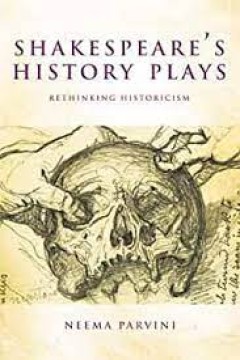
Shakespeare's History Plays Rethinking Historicism
Shakespeare's History Plays boldly moves criticism of Shakespeare's history plays beyond anti-humanist theoretical approaches. This important intervention in the critical and theoretical discourse of Shakespeare studies summarises, evaluates and ultimately calls time on the mode of criticism that has prevailed in Shakespeare studies over the past thirty years. It heralds a new, more dynamic way…
- Edition
- -
- ISBN/ISSN
- 9781474423540
- Collation
- -
- Series Title
- -
- Call Number
- -
 Computer Science, Information & General Works
Computer Science, Information & General Works  Philosophy & Psychology
Philosophy & Psychology  Religion
Religion  Social Sciences
Social Sciences  Language
Language  Pure Science
Pure Science  Applied Sciences
Applied Sciences  Art & Recreation
Art & Recreation  Literature
Literature  History & Geography
History & Geography